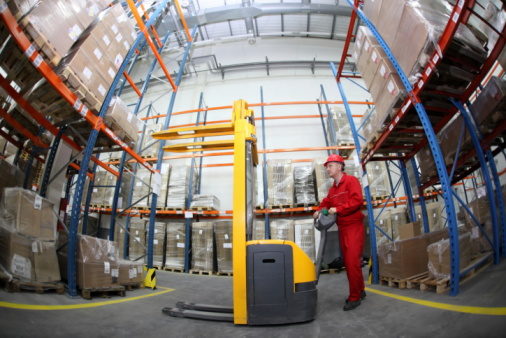As products of all kinds make their way from manufacturing facilities to store shelves, their shipping pallets are typically wrapped and unwrapped on several occasions, with acres of plastic stretch wrap getting discarded each time.
This need not be the case, and one major way to reduce this cause of waste is to reuse pallet wrappers. The problem is that traditional plastic stretch wrap, intended to hold often fragile products firmly in place as they bump down the highway, won’t work so well a second time. “Fortunately, reusable pallet wrapping is cost effective and pays for itself after 30 cycles. It also sends a message that your organization is serious about find ways to reduce waste, which is better than recycling,” says Jason Mahon, founder of Premier Organics. Specifically, he is speaking about his company’s adoption of Envirowrappers, a reusable pallet wrapping solution on offer from Amici Enterprises Inc.
This eco-friendly way of securing products undergoing transport fits standard 40” by 48” pallets, and can be custom sewn to fit the height required by the user. According to Frank Gallucci, president of Amici Enterprises, Envirowrappers will remain reusable for many years—he’s seen some last up to 10—if looked after correctly and depending on how roughly they are used. Aside from the environmental benefit, this solution allows users to work with pallet loads that have shifted and become unstable by adjusting buckles, where stretch wrap would leave users helpless. They also reduce the clinginess common with traditional stretch wrap, so pallets can be run close together.
“We have found success at any company with a so-called ‘closed loop system’, whereby they have control of being able to retrieve the wrappers and bring them back to their warehouse for reuse,” says Gallucci. He adds that grocery distributors have had the most success so far, followed by manufacturers that use the solution as they move pallets from one area to another within their own facilities.
Mahon says his company currently doesn’t use this solution for outbound shipments, except when sending to some small distributors that want to inspect the units. But, the company is urging its larger distributors to implement the program as well, with the end result being a closed system that incorporates the reusable wrappers in the delivery of products to retailers.
“Implementation was a little tricky. We had to do more training and explain the costs of the material and the use of the material. We are working on putting another order together to resize the units and make them smaller for our racking,” says Mahon. The company, he says, implemented the solution with the help of a grant from stopwaste.org, a unit of the Alameda County Waste Management Authority. Many county waste authorities have similar grants available, with money in this case coming from taxes levied on landfill disposal. Mahon advises those interested to check with their local agencies to see if something similar is available, and to see if training on reusable supply chain programs is on offer.
Published in WholeFoods Magazine, June 2011










